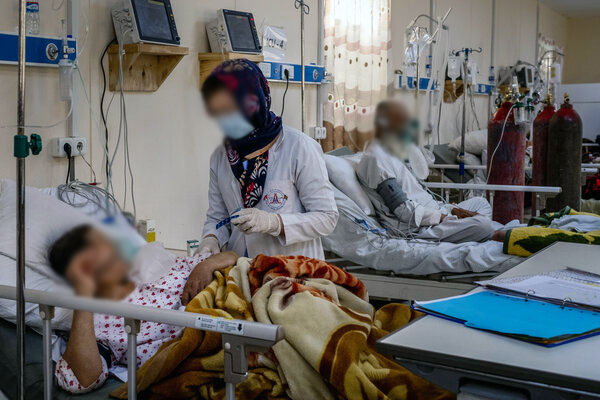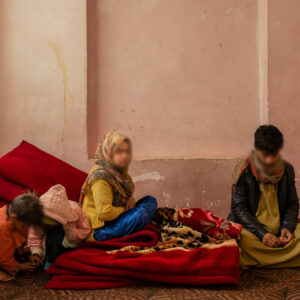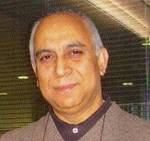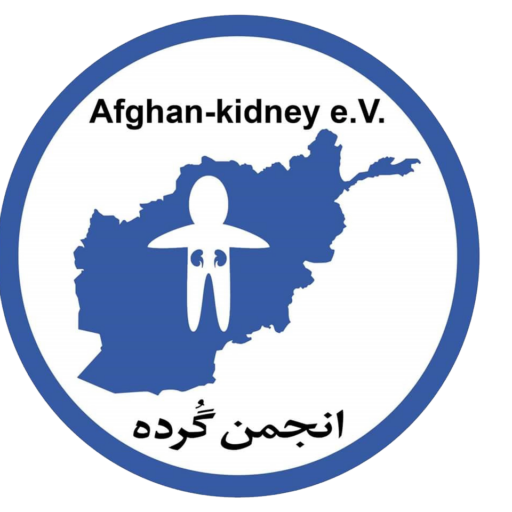

Afghanistan is ranked 155 out of 169 countries for its human development index (0.349), a composite measure of three basic dimensions of human development: health, education and income. Despite recent improvement (HDI 2010), Afghanistan is still well below the regional average. Comparisons of individual health indicators between the number 1 ranked country on the HDI (Norway) and Afghanistan reveal drastic differences in health status. The report provides sobering insight into the challenges ahead. For example, life expectancy at birth for Afghans is 44.6 (HDR 2010) compared with 81 in Norway (HDI 2010). Under-five mortality is 199 per 1,000 live births (WDI, 2010) compared with 4 per 1000 in Norway (HDI 2010). The maternal mortality ratio in 2002 was 1600 for 100,000 live births (2006 Afghan Health Survey in Annual Report 1387), the highest in the world except for Sierra Leone. More recent estimates document little progress, as reported in Hill (2007) 1800 for 2005, Hogan (2010) 1575, and WHO (2010) 1400 for 2008. Finally, the prevalence rate of tuberculosis is 270 per 100,000 population (based on 2008 data) compared with 170 globally (UN 2011).
However, the situation is improving, albeit slowly (World Bank, 2011). Almost 3 out of 4 children under the age of five have been immunised against measles by age 1 compared with well under 50% in 2000 (UN 2011, MDGs). 83% of the population now has access to medical facilities, and 65% of those who are able to access services can do so within a two hour walking distance. Since 2000, the prevalence rate of tuberculosis has been cut in half (UN 2011, MDGs). The tuberculosis detection rate under directly observed therapy (DOTS) is 61% (2008) compared with 12% in 1998, and the treatment success rate under DOTS is 87% (2008) compared with 33% in 1998. (UN 2011, MDGs) (Refs 1-6)

Renal problem in the country
There are allot of patients with serious renal problem in the country and most of them due to wrong diagnose or late diagnose are not discovering and treating in the right time, majority of them due to uremia in serious and comma condition coming to the health clinics and hospitals, which is very late and most of them are losing their life and chance of their treatment and cure is very low.
The very clear reason of not treating this people is lack of proper Hemo Dialyze facility in the country, previously there was not any Hemo Dialyze facility in the whole country but in these days there is one privet Hemo dialyze machine in Kabul which is very low standard and delivering very poor service for the people, which is very expensive for people.
Hemo dialyze service is very expensive in Afghanistan and the quality of existing service is also very low, most of patients with renal problem who needs H-dialyze are not able to afford purchasing quality medicine and paying fees for dialyze, and because of this most of them are just able to do dialyze once in week and some of them once in month which is not sufficient, and one patient normally needs 3 time doing dialyze in one week and every time at list 3 hours should be treated by dialyzes, but because of lack of H-dialyze facility and very poor quality service, technical skills, poor quality of medicine, patient poverty, poor transportation for those patients who lives in provinces (the majority of patients lives in the province) its not happening in proper way of treatment and because of all mentioned reasons the mortality is very high amongst the patients with kidney problem
Main causes for renal failure in Afghanistan:
1. High blood pressure developing Hypertensive Nephropathy
2. Diabetes developing Diabetic Nephropathy
3. Pregnancy and delivery complications (which is happening in the poor quality health service or at home.)
4. Infectious diseases like AGE if it’s not properly treated
5. Renal/Kidney stones
6. Taking to much pain killers without prescription, like NSAID = non steroid anti inflammatory drugs
7. During and post operative complications
8. Urethral obstructions due to different issues
9. Others
From September 2010 up to September 2011 we have registered 448 patients with renal failure which is not the right number, because very little of them are coming to Kabul for taking treatment and H-dialyze, (again because of lack of treatment center) the majority of them from most part of the country are going to Pakistan, India, Iran, Turkey and other neighboring countries.
We are sure if there is good registration system to capture all patients with renal diseases in the country especially renal failure, the real numbers of them are more than 1000s.
In the whole country we have just one privet H-dialyze center in Kabul which is capital city of the country, the service of this center is low standard, expensive and physically out of access to the most part of the country.
Afghanistan seriously affected by war, economy of the people is very low, health awareness is very low, health service in the rural areas is poor, transportation and road condition is very poor security is worse in most part of the country; naturally Afghanistan is very mountainous and very cold and long winter. All of the mentioned factors are limiting patients with kidney problem to get access to the early diagnose and treatment.
As we mentioned earlier most of the patients (more than 80%) from Afghanistan are going to Pakistan for Hemo-dialyze, unfortunately the transportation, accommodation, security from Afghanistan to Pakistan, quality of service is another tragedy, most of kidney patients traveling abroad for treatment and dialyze are dying and their death body is bringing back home, and there is no any referral and proper transferring and recording system for that.
Needs:
At list we needs following Hemo dialyze and kidney treatment centers in the country:
- 5 Hemo dialyze center in Kabul city
- And 6 more Hemo dialyze center for 6 big regions in the country like (Mazar, Kunduze, Herat, Kandahar, Jalalabad and Bamyan provinces.
- Technicians for repairing, operating and maintaining of the equipments.
- Good quality of medicine for HD.
- Proper building in the long term
Thank you

صحت عامه در افغانستان
افغانستان از کشور های اسیا میانه با جمیعت 25 میلیون نفری تنها کشوری است که در مورد رفاه و بهداشت عمومی نظر به مشکالت اقتصادی و دیگر معضلات توجه به ان نشده است و نظر به مشکلات سی سال اخیر خسارات زیادی را متحمل شده است حتی در بعضی از شهرهای افغانستان سیستم بهداشتی و خدمات صحی بهم خورده است . وضیعت نامناسب بهداشت سبب شده است که مرگ ومیر کودکان در صدر امار جهانی قرار بیگیرد . مشکلات بهداشتی افغانستان به دلیل جنگهای سالهای اخیر و ناامنی در مدت کوتاهی قابل حل نخواهد بود.
وزارت صحت عامه افغانستان توانسته با کمک مالی کشورهای جهان در طول ده سال اخیر وضیعت بهداشت و توزیع خدمات صحی را در مراکز چند شهر بزرگ افغانستان بهتر ساخته که بیشتر شکل وقایوی را داشته است از اینکه طب معالجوی هنوز رواج ابتدائی نیافته است سازمانهای بین المللی ، افغانستان را از نظر مبتلایان به سل در مقام دوم قرار داده اند و کابل به شهر سالدانه مشهور شده است این معضلات و ضعف طب معالجوی سبب گردیده است که میزان مرگ ومیر افغانها بالا برود . به گفته خانم “ثريا دليل” سرپرست وزارت صحت عامه افغانستان در كنفرانسهای خبري در كابل، هفتاد في صد كودكان و مادران در اين كشور به خدمات درماني دسترسي ندارند ، این گفته خانم ثریا دلیل تنها یک نقطه از مشکلات جامعه که همان وضیعت کودکان و مادران میباشد اشاره شده است در حالیکه نظر به شاخصهای رشد جمیعت و بهداشت افغانستان ، مرگ و میر افغانها بالاتر از ان استکه وزارت صحت عامه افغانستان راپور داده است وضیعت نامناسب طب معالجوی ، آلودگی های محیط زیست و امراض ارگانیک سبب شده است بیشتر بیماران با مرگ دسته و پنجه نرم کنند ، پائین بودن سطح اگاهی مردم ، اقتصاد ضعیف ونبودن مراکز درمان معالجوی سبب شده است تا بیماران برای علاج مسئایل جزی به خارج از کشور بروند که از توان اکثریت بیماران خارج میباشد . نظر به شاخصهای ثابت رشد جمیعت در افغانستان و داده های سازمانهای بین المللی سالانه هزاران انسان نظر به مشکلات نارسائهای کلیوی ، امراض قلبی ، سکته مغزی و سکته قلبی جان خودرا در افغانستان از دست میدهند و یا در حالت جان دادن هستند ، تنها در مورد امراض کلیوی که من تحقیق کرده ام با در نظر داشت نفوس افغانستان و راپورهای موثق اضافه از 5000 افغان نظر به ضعف طب معالجوی ، عدم شناخت از فرهنگ اهدا کلیه و نبود مراکز دیالیز در افغانسان با سفرهای به خارج از کشور میمرند در حالیکه ما به کمک الهی و دفاع از انسانهای در حال مرگ و شناخت از وظایف انسانی خود میتوانیم همت بخرچ دهیم در پخش فرهنگ اهداه اعضای بدن و داشتن یک مرکز دیالیز در افغانستان که از ستونهای اصلی طب معالجوی یک کشور بحساب میاید اعمار نمائیم
با وجود صرف میلیونها دلار کمک های خارجی در بخش بهداشت و درمان افغانستان بسیاری از شهروندان افغان هنوز هم از کیفیت نامطلوب خدمات بهداشتی و درمانی کشورشان ناراضی هستند حتی یک مرکز دیالیز که برای تصفیه خون بیماران کلیوی ضرور میباشد وجود نداشته و افغانستان یگانه کشوری در سطح جهان است که فاقد مرکز دیالیز میباشد . بیاید به بیماران کلیوی کمک نمائیم تا درد و رنج مردم کاسته شده یک محیط ارام داشته باشیم . بنیاد کلیه افغان در تلاش خواهد بود تا در این راستا به کمک شما و ضمانتهای الهی قدم های اول را برای وقایه ، دیالیز و پیوند کلیه طبق میعار های بین المللی برای همه مردم در افغانستان بردارد
وحدت احمدیار







